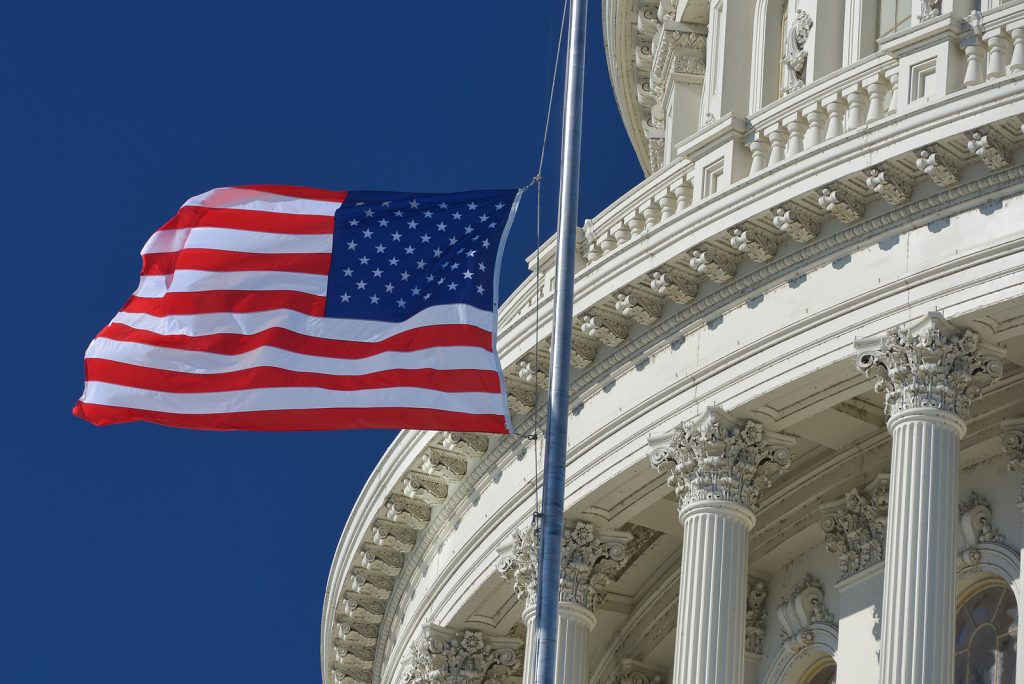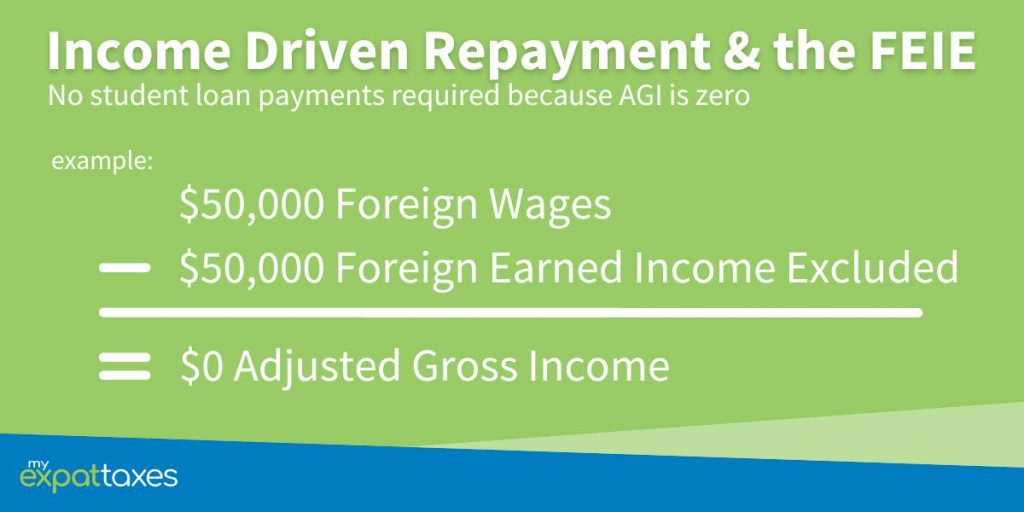The Biden Save Student Loan Plan for US Expats
August 30, 2023 | Featured, Foreign Earned Income | 6 minute read
Expat Tax Blog. Tax Tips for US Americans abroad.
Updated January 13, 2025
 All blogs are verified by Enrolled Agents and CPAs
All blogs are verified by Enrolled Agents and CPAs
Updated January 13, 2025

In the ever-evolving world of student loans and taxation, we’re sharing some exciting news. In August 2023, President Biden announced a new student loan plan that’s got folks buzzing. But what does The Biden Save Plan mean for expats and those benefiting from the Foreign Earned Income Exclusion? We’re here to break it down for you, so grab a cup of coffee, and let’s dive in!
Understanding the Foreign Earned Income Exclusion (FEIE)
Before we get into the nitty-gritty of how Biden’s student loan plan might intersect with the FEIE, let’s take a moment to refresh our memory on what the FEIE is all about.
The Foreign Earned Income Exclusion is a provision in the US tax code that allows eligible taxpayers living and working abroad to exclude a certain amount of their foreign earned income from US taxation. For the current tax year (2024, filed in 2025), the exclusion amount is set at $126,500 per qualifying individual. In essence, if you earned less than this amount while living and working in a foreign country, you might owe little to US federal income tax on that income.
Biden’s Save Student Loan Plan: The Basics for Expats
Now, let’s get into the specifics of President Biden’s latest Save plan, announced in August 2023, and how it effects expats using the FEIE. The primary aim of this plan is to address the student debt crisis in the United States, making higher education more affordable and easing the burden of student loans. Here’s a brief overview:
1. Loan Forgiveness
The plan proposes to forgive a significant portion of federal student loans. It aims to provide relief to borrowers with outstanding federal student loans, particularly those who attended public colleges and universities, historically black colleges and universities (HBCUs), and other minority-serving institutions.
According to the Save Plan fact sheet, “Income-Driven Repayment plans require all borrowers, even those who only attended school for a single term, to repay their loans for at least 20 or 25 years before receiving forgiveness of any outstanding balance. Under the SAVE plan, borrowers whose original principal balances were $12,000 or less will receive forgiveness after 120 payments (the equivalent of 10 years in repayment). For each additional $1,000 borrowed above that level, the plan adds an additional 12 payments (equivalent of 1 year of payments) for up to a maximum of 20 or 25 years.”
2. Income-Driven Repayment
The plan intends to revamp income-driven repayment plans, making them more generous and accessible. Borrowers would pay a percentage of their discretionary income towards their loans, with the remainder forgiven after a set number of years.
3. Interest Rate Reduction
To reduce the overall cost of borrowing, the plan suggests lowering interest rates on federal student loans. This could make paying off loans more manageable for borrowers.
4. Increased Pell Grants
The plan proposes to increase the maximum Pell Grant award, which is a need-based federal grant for low-income students. This would make higher education more accessible to those with financial constraints.
How Biden’s Student Loan Plan Might Affect Expats and the FEIE
Now, let’s address the big question: How does The Biden Save student loan plan intersect with the Foreign Earned Income Exclusion, and what does it mean for expats?
1. Loan Forgiveness and the FEIE
If you’re living and working abroad while benefiting from the FEIE, you might be wondering whether you qualify for student loan forgiveness under the new plan. As of now, the plan needs to explicitly address this issue. However, at this point, there is no reason to believe expats should be excluded. If you meet these criteria, you may be eligible for some form of relief. Expats should keep an eye on any future updates or clarifications to see if eligibility extends to them.
2. Income-Driven Repayment and the FEIE
The proposed income-driven repayment plans could, in fact, be relevant to expats. Since these plans calculate your monthly loan payment based on your discretionary income (assumed to be Adjusted Gross Income on your Tax Return), which can be significantly lower when utilizing the FEIE, your loan payments might also be lower – or even non-existent. A welcomed benefit for expats managing student loans from abroad.

3. Interest Rate Reduction and the FEIE
Lower interest rates can significantly reduce the cost of borrowing. If you have federal student loans, this could help you save money over the life of your loans, regardless of where you live. The FEIE wouldn’t directly impact this aspect of the plan.
4. Pell Grants and Expats
The increase in Pell Grants could potentially benefit expats who are U.S. citizens and plan to return to the United States for higher education. Keep in mind that Pell Grants are typically awarded to undergraduate students with financial need so that eligibility criteria would apply as usual.
What Expats Should Do
While it’s still early days for President Biden’s Save plan, there are some actions expats with student loans can take to stay informed and prepared:
1. Stay Informed
Keep an eye on updates and clarifications regarding the student loan plan. The details may evolve, and eligibility criteria could change.
2. Contact Your Loan Service
If you have federal student loans, reach out to your loan service to discuss your options. They can provide guidance on repayment plans and any potential benefits you may be eligible for.
3. Assess Your Financial Situation
Take a close look at your overall financial situation, including your income, expenses, and student loan obligations. Consider how any changes in repayment plans might affect your budget.
4. Consult a Financial Advisor
If you have complex financial circumstances, such as investments or multiple types of loans, consider consulting a financial advisor with expertise in student loans and expatriate taxation. They can help you navigate the best path forward.
The Biden Save Plan Could be a Win for Expats Using the FEIE
President Biden and his student loan save plan holds promise for expats by addressing the student debt crisis in the United States. While the plan doesn’t explicitly target expats, there are elements, such as income-driven repayment plans, that could have implications for those benefiting from the Foreign Earned Income Exclusion (FEIE).
As an expat, it’s essential to stay informed about the evolving details of the plan and how they might apply to your unique situation. While there may be few immediate and direct benefits for expats, the potential changes in income-driven repayment plans and lower interest rates could make managing student loans from abroad more manageable.
Remember, when it comes to student loans and taxation, it’s always a good idea to consult with experts who can provide personalized guidance based on your specific circumstances. Stay informed, stay proactive, and continue your financial journey with confidence!

Written by Nathalie Goldstein, EA
Nathalie Goldstein, EA is a leading expert on US taxes for Americans living abroad and CEO and Co-Founder of MyExpatTaxes. She contributes to Forbes and has been featured in Forbes, CNBC and Yahoo Finance discussing US expat tax.
August 30, 2023 | Featured, Foreign Earned Income | 6 minute read







